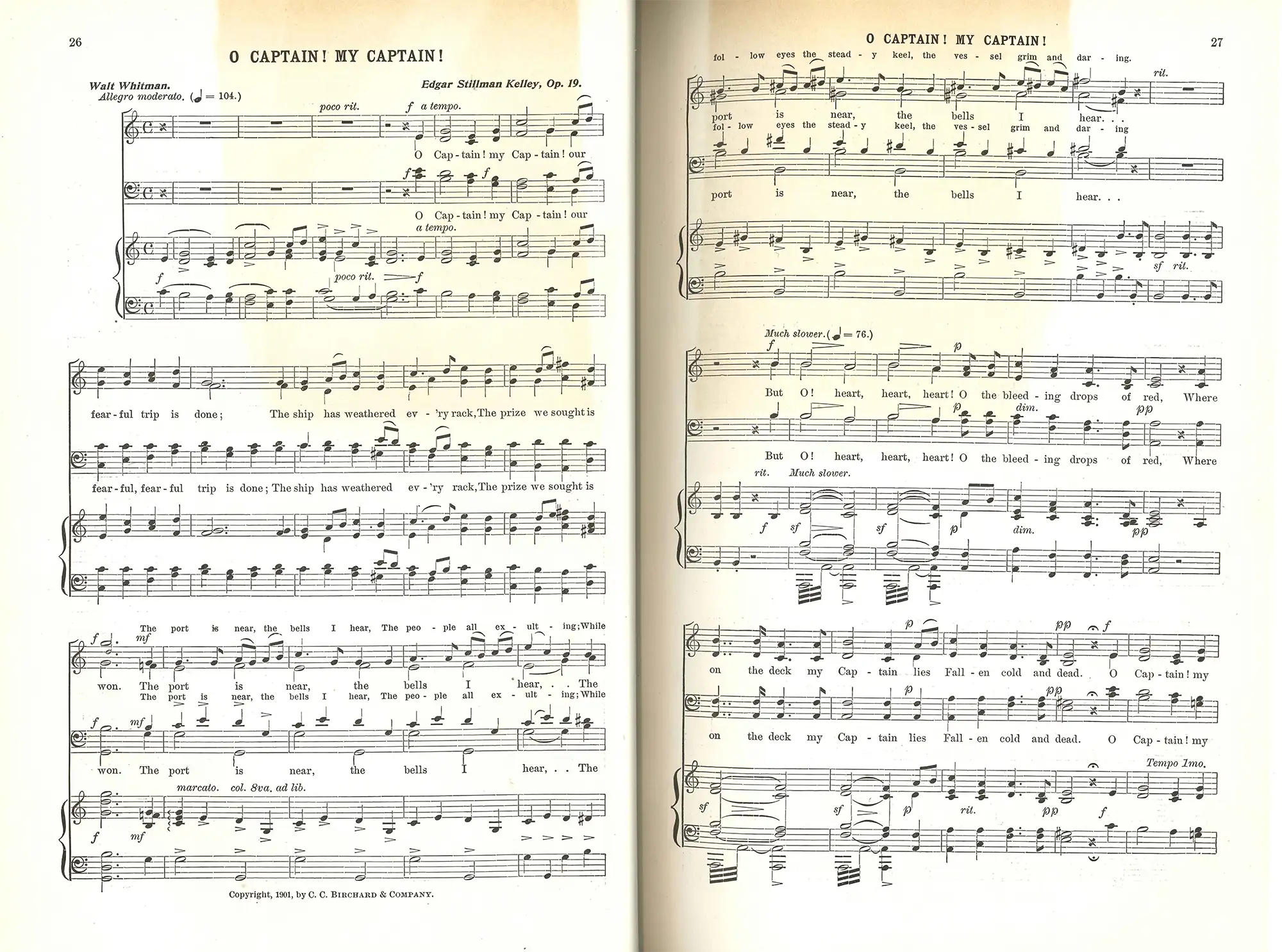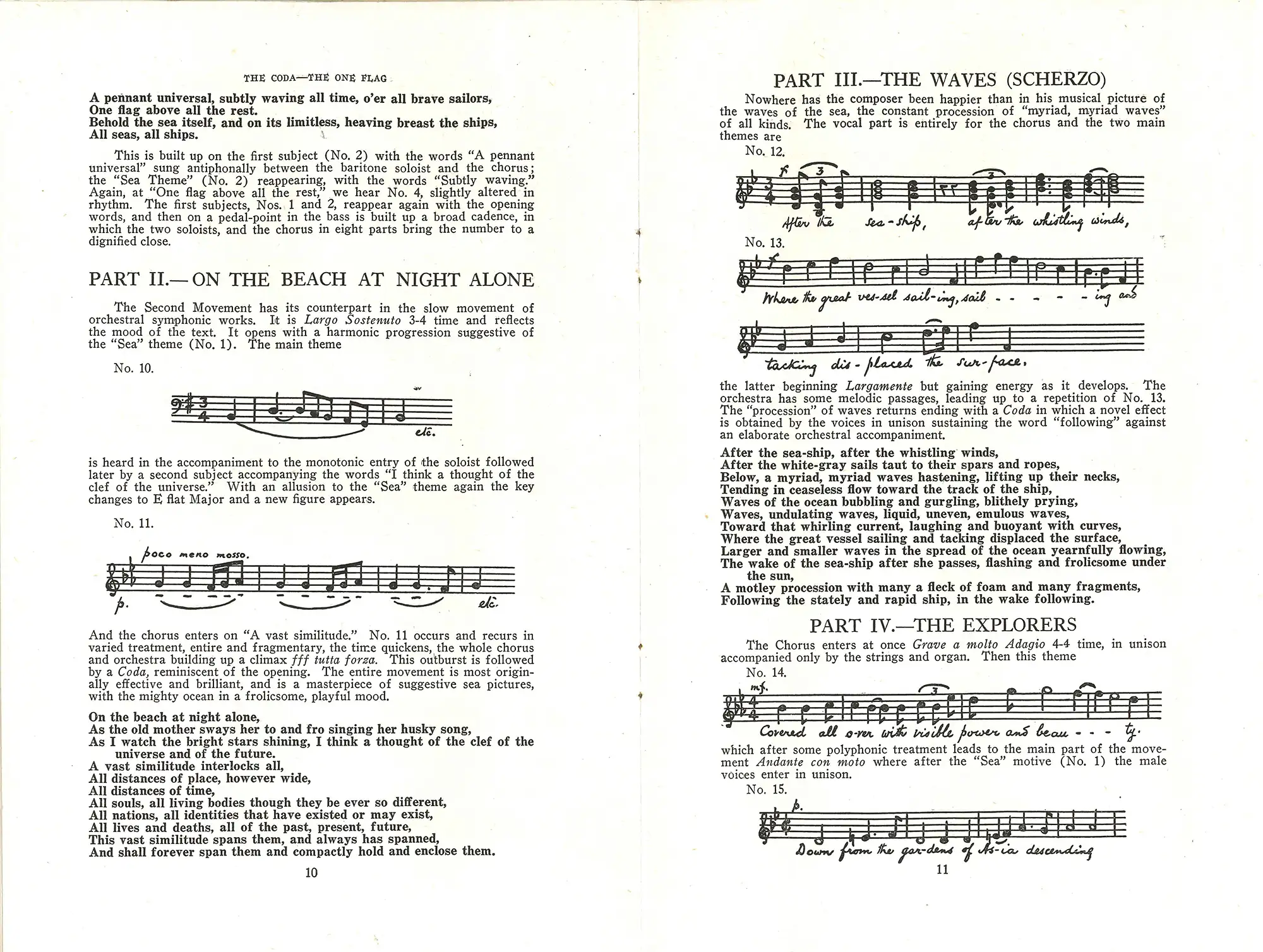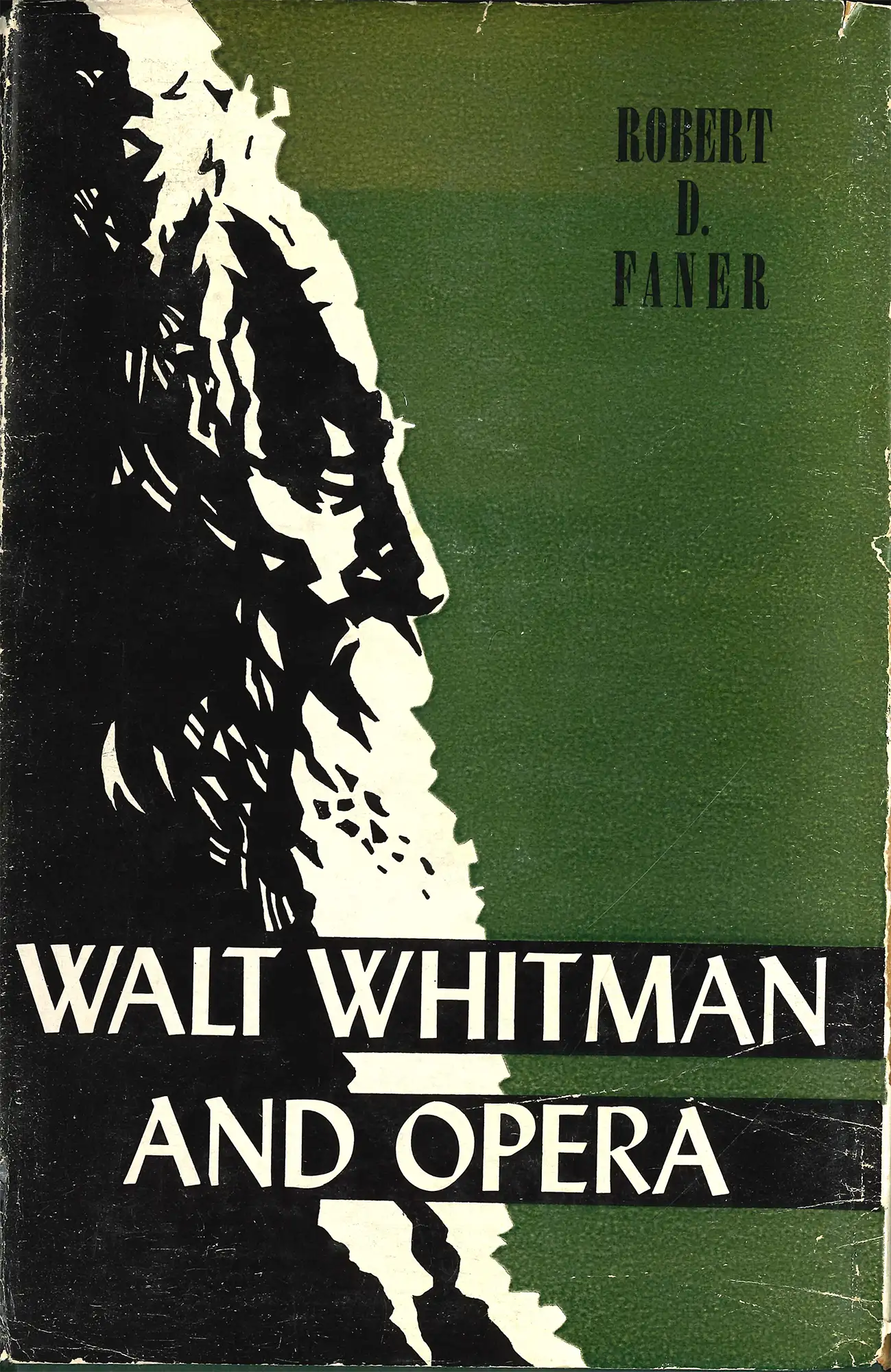Case 9
- Music

W.L. Tomlins (editor). The Laurel Song Book: for Advanced Classes in Schools, Academies, Choral Societies, etc. Boston: C.C. Birchard & Company, 1901.
Whitman’s poetry lends itself naturally to musical composition. His work has been set to music by numerous composers, notably in Britain and America, in hundreds of different musical and vocal settings.
The Laurel Song Book contains three poems by Whitman set to music: ‘O Captain, My Captain’, ‘Weave in My Hardy Life’, and ‘We Two Together’.
Displayed is Whitman’s well-known elegy on the death of President Lincoln, ‘O Captain, My Captain’ set to music (SATB and piano) by the American composer Edgar Stillman Kelley (1857-1944).

W.L. Tomlins (editor). The Laurel Song Book: for Advanced Classes in Schools, Academies, Choral Societies, etc. Boston: C.C. Birchard & Company, 1901.
Open image in new window

The Toronto Mendelssohn Choir, H.A. Fricker, Conductor: Twenty Fourth Season: Monday Evening, April 11th, 1921. Toronto: Toronto Mendelssohn Choir, 1921.
This 1921 concert programme is for a performance by the Toronto Mendelssohn Choir of Ralph Vaughan Williams’ A Sea Symphony, the text of which comes from Leaves of Grass.
Whitman’s poetry was not well known in Britain at the time Vaughan Williams wrote this symphony. However, the poet’s use of free verse lent itself to symphonic treatment at a time when fluidity of structure was coming into vogue more than traditional, metrical settings of text.

The Toronto Mendelssohn Choir, H.A. Fricker, Conductor: Twenty Fourth Season: Monday Evening, April 11th, 1921. Toronto: Toronto Mendelssohn Choir, 1921.
Open image in new window

Robert D. Faner. Walt Whitman & Opera. Philadelphia: University of Pennsylvania Press, 1951.
Whitman’s love of music had its origins in his childhood, when his mother Louisa would sing folk songs to her large family. By the time he had written the first edition of Leaves of Grass, Whitman was familiar not only with popular hymns, ballads and folk songs, but with the musical works of the great composers of Europe.
Whitman’s reviews of the music that he heard in concert halls and theatres in New York and Brooklyn are a valuable source of information about the history of music in mid-nineteenth century America.
Musical terms are abundant in Whitman’s poetry, and the larger musical forms, notably opera, influenced the structure, style and design of some of his longer poems. Robert Faner’s work is the first book-length study of the growth and creative manifestation of Whitman’s taste for music and the musical world.


